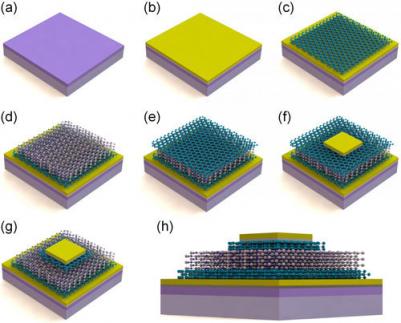Graphene electrodes may open new paths in molecular electronic devices
An international team of researchers, led by the University of Bern and the National Physical Laboratory (NPL) and assisted by the University of the Basque Country (UPV/EHU, Spain) and Chuo University (Japan), has demonstrated a new way to control the functionality of next-gen molecular electronic devices using graphene. The results could be used to develop smaller, higher-performance devices for use in a applications like sensors, flexible electronics, energy conversion and storage, and more.
The team demonstrated the stability of multi-layer graphene-based molecular electronic devices down to the single molecule limit. The findings represent a major step change in the development of graphene-based molecular electronics, with the reproducible properties of covalent contacts between molecules and graphene (even at room temperature) reportedly overcoming the limitations of current state-of-the-art technologies based on coinage metals.











